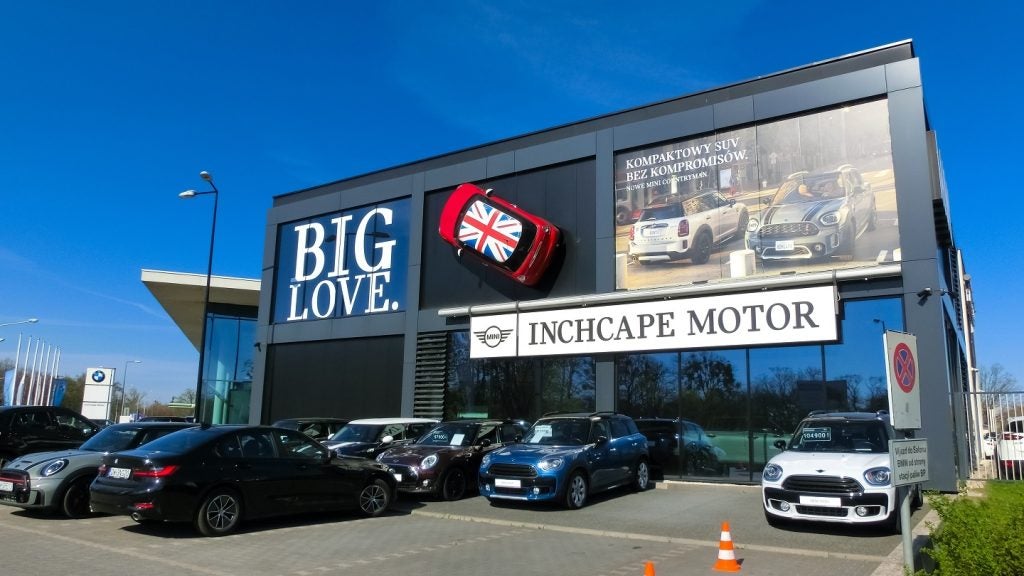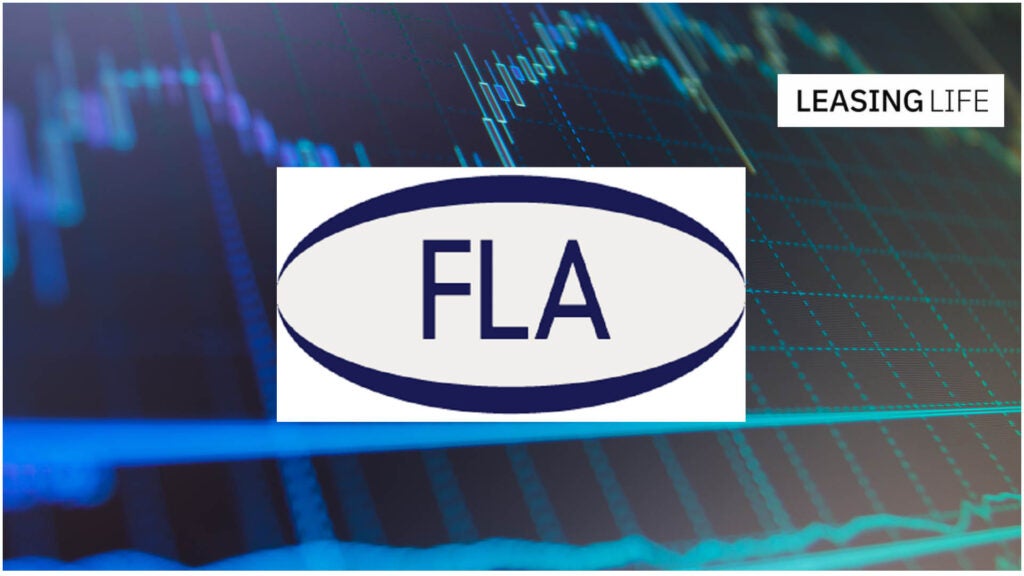
Company executives from independent lenders, captive lenders, brokers and dealers responded to a range of questions on whether they expect company and industry features to alter over H2 2015, and if so how.
The survey found that the majority of industry professionals were optimistic about the last six months of 2015, although the confidence levels were lower than the ones recorded for the first half of the year.
Nearly eight out of ten (79%) respondents expected their company’s business volumes to increase, of which a third said they anticipated business volumes to increase substantially. The remainder believed they would remain unchanged.
"The economy is improving and consumers’ purchasing power has increased. I think companies expect consumers to replace their cars. I expect to see new car business continuing to grow for a little longer than people expected," says Moneybarn managing director Peter Minter.
The proportion of survey participants who expected business volumes to increase was lower compared to the first six months of the year, however. For the first half of the year, 93.75% of industry professionals said they expected a boost in business volumes.
As a result of the anticipated increase in business volumes, 67.9% of the respondents expect their staff levels to increase in the last six months of 2015, with the rest believing that they will remain the same.
How well do you really know your competitors?
Access the most comprehensive Company Profiles on the market, powered by GlobalData. Save hours of research. Gain competitive edge.

Thank you!
Your download email will arrive shortly
Not ready to buy yet? Download a free sample
We are confident about the unique quality of our Company Profiles. However, we want you to make the most beneficial decision for your business, so we offer a free sample that you can download by submitting the below form
By GlobalDataOn the other hand, only half (52.63%) said their sentiment was better than the same period last year, while 10.53% said it is worse.
Car sales
New car registrations increased by 7% in the first half of 2015 compared to the same period last year to reach 1,376,889, according to figures released by the Society of Motor Manufacturers and Traders. The rise was anticipated by two-thirds of the respondents of our confidence survey in January.
For the second half of the year, industry professionals’ expectations on new car sales are less aligned. Half of the survey participants believed that there would be an increase in car sales and the rest either said that they would stay the same (38.89%) or decrease (11.11%).
Ed Paulat, managing director and executive vice-president at GM Financial, says he expects new cars sales to grow as a result of manufacturers pushing increased volumes into the UK market.
"Various manufacturers found that the UK was an attractive marketplace over the last two-to-three years when countries in Southern Europe were in decline," says Paulat. "Manufacturers will probably continue to view the UK market as buoyant and continue to grow their business in the country."
One of the reasons behind the attractiveness of the UK market for manufacturers operating around Europe has been the exchange rate. Doug Gillies, managing director at Toyota Financial Services UK, says the favourable pound-to-euro conversion has established the UK market as "compelling" for captive lenders.
The industry professionals who took part in the survey generally believed that stronger consumer confidence could be another driver of increased sales, for both used and new cars. Two-thirds of the survey respondents expected consumer confidence to rise in the next six months.
Paulat says: "There is evidence that two million additional jobs were created during the previous government. According to the new budget, an additional one million could potentially be created during the Conservatives’ time in government. This demonstrates to me that business confidence has rebounded in the UK and on the back of this also consumer confidence."
The survey revealed that a higher proportion of people expect used car sales to grow than new car sales. Some 77.78% of respondents said they expected used car sales to increase, of which a sixth said they would increase substantially.
Minter explains: "Used car sales are becoming more popular. Part of it would be that trade professionals are witnessing a growth in cars coming through from ex-PCP cars and boosting sales considerably. I also think used cars are more affordable, and so when you have a rise in consumer confidence they will take off, as well as new car sales.
"In addition, manufacturers now have a stock of relatively new used cars which used to be only available to them through company car fleets. This is a wonderful opportunity for them to get really good products out there into the market, which they can then put back through their own network."
Paulat anticipates that used car sales will remain at the levels of the last six months, as attractive finance packages are likely to draw people into buying a new car rather than used.
The majority of respondents to the survey (64.71%) said they thought residual values would remain constant over the second half of the year; however a sizable minority (29.41%) expected a decrease. The remainder predicted an increase.
The good macroeconomic performance and the stability of the used car market influence Paulat’s anticipation that residual values will remain constant.
"I don’t see any immediate reasons why residual values should decline, unless external shocks occur," he says. "The market demand is fostered by high consumer confidence and there’s a stable flow of quality used cars into the market. The market for used cars is stable; steady demand and steady supply dictates that used car prices should remain unchanged."
On the other hand, Gillies believes there’s going to be a decline in residual values because of an oversupply of used cars due to an increase in sales of new cars.
"Last year, used car values increased due to a shortage of quality two-to-four-year-old vehicles in the marketplace," Gillies says. "When there’s a very strong proposition for customers to buy new cars, which is the current situation, it could lead to an oversupply of used cars especially in the A and B segments."
He adds: "Over the last three months, CAP Gold and CAP Black Book have shown negative trends in values in most segments. There will inevitably be a small reduction in residual values, which is probably a ‘correction’ of the market which will stabilise the market over the next three-to-six months."
The majority (64.71%) of respondents said that they are not concerned about the impact of PCP on residual values.
Finance penetration
The survey responses were split between car finance penetration increasing or staying the same over the last six months of 2015. Half (50%) answered they expect it to remain unchanged and 44.4% expect it to increase. The remainder said it would decrease.
Gillies says: "I think new car finance penetration will continue at very high levels in an environment of low interest rates, foreign exchange windfalls and the UK being one of the few growing markets in Europe, and OEMs will continue to support finance orientated offers. I also expect used car finance penetration to grow."
The survey participants were asked to identify the types of finance that will grow faster in the second half of the year. Personal contract purchase was the finance type that most industry professionals expected to grow the most over this period, followed by hire purchase and personal contract hire.
According to Paulat, PCP will grow faster than other products because manufacturers consider it a "fantastic" retention tool and aim to increase its supply.
"For manufacturers, it’s all about customer retention, winning customers for life. I think the one finance product that can help them support that ambition or strategic approach is PCP," Paulat says. "With PCP, you have greater interaction and engagement with the customer over the cycle of the funding. Everybody likes it and believes that there’s value in it, which is why I believe it will become more popular."
Apart from greater promotion of this finance product by manufacturers, Minter expects increased use of PCP in the used market will also boost its speed of growth.
He says: "PCP has grown dramatically as a marketing tool for manufacturers and it’s now just beginning to get into the used car market, so there’s plenty of room for growth of PCP in the used car market. HP is the standard finance product that’s probably easier to understand and easier to sell for dealers. I think they will both grow fast, but I anticipate PCP will grow faster than HP."
Paulat believes HP will always have its place in the market, but PCP will grow at a greater pace because of changing consumer behaviour, which is shifting towards a usership model. He also highlights that the increase in popularity of PCP reflects the industry’s growing efficiency in explaining this "complex" product.
Financial Conduct Authority
The way the car finance market operates has changed after the FCA introduced a new set of rules, with the majority of market players applying to gain full authorisation by the regulator.
The survey has shown there is a diversity of opinions towards the impact of the FCA within the motor finance industry.
Some 36.84% of respondents said the FCA’s influence has been positive and 5.26% found it highly positive. On the other hand, 26.32% said the regulator’s effect on the market has been very negative and 5.26% characterised it ‘negative’. Just over one in four (26.32%) said it has been neutral.
Minter considers the overall effect of the FCA to be positive, although he highlights that there’s still "room for improvement".
He says: "I think the impact of the FCA on the market has been really positive. The FCA forced market players to think more constructively about their customers, worry about how to treat people and be more ethical.
"If you look at the scenery today, businesses are better run as a result of it. The few areas where people feel frustrations with the FCA are outweighed by the overall improvement in quality of business.
"However there’s a danger that the positive impacts of the FCA could hide one or two areas where there’s room for improvement. There are cases where the approach of the FCA has the potential to create an unlevel playing field, or penalise some companies unfairly for doing business in a certain way. There is plenty to talk about that they could do better."
According to the survey, the key impact of the FCA has been that firms are treating customers more fairly, followed by increased costs for firms and changes in staff hiring and training.
Paulat says businesses and the industry in general will benefit from treating customers more fairly. "Everybody just had to focus. As an industry and as a company you have to love your customers more than the regulator does," he says. "Treating customers more fairly will build customer loyalty and confidence."
In order to comply with regulations, firms have to invest in people and systems which have been increasing their costs.
As an example of this, Oliver Mackaness, director at Billing Finance, tells Motor Finance that the company is planning to employ an in-house full-time employee to deal with compliance issues.
Paulat says that despite the high costs for firms, it’s important to have someone that could deal with regulatory issues within the company, rather than relying on external consultants.
Paulat adds: "Many firms have employed external consultants to deal with the compliance issues, but you can’t rely on external consultants in the long term. If you have under-invested in the compliance and regulatory area in the past, you have to ensure that you have systems and functions in place to support not only the business today but also the business in the future.
"It’s expected that there will be more regulatory changes down the road. The longer you wait to implement things, the less time you have to implement changes, and the more costly and stressful it’s going to be."
Industry challenges
The survey found that industry professionals ranked the change in regulation and taxation as the primary challenge that the industry has to face in the last six months of 2015. Keeping up with technology was ranked the second-biggest challenge, followed by the ability to attract talent.
Commenting on the challenge to the industry from the changes in regulation and taxation, Paulat says: "As an industry we still need to come to terms with everything that’s happening with the FCA application process. If you look at the press over the last couple of months, major institutions had massive fines handed out against them. I believe some players need to do their homework."
Minter believes an important future challenge is to keep up with the pace of technological change, but says there will be opportunities created by being able to be up to date.
"I’m not sure all the business models we use are appropriate today given the technology and also the attitude of younger generations," Minter says.
"Generation X and Generation Y have a different attitude towards borrowing money and I’m not sure that everything we do is entirely appropriate for that. I think that’s where the challenges and the opportunities lie,"
According to Mackaness, companies in the near future will have to invest in providing an e-signature tool in their services.
Attracting and retaining talent has been cited by a number of industry professionals as a significant challenge for the future of the motor finance industry.
Gillies believes the industry should pay greater attention to this issue and companies should invest more in the development of their personnel.
"The industry has had a relatively high turnover of staff and moving forwards we need to focus on attracting the right staff and retaining good-quality individuals as the business grows," says Gillies. "It’s key to develop a culture, train and develop staff to underpin long-term excellent customer outcomes."







